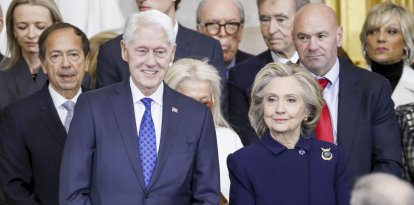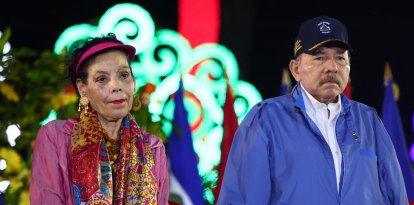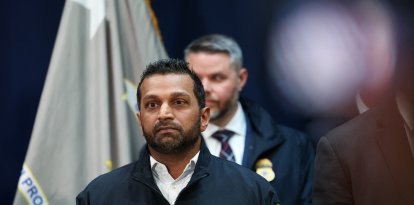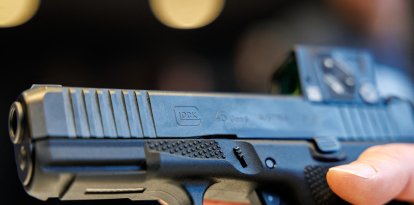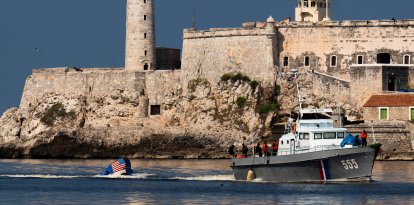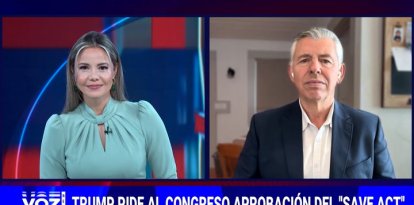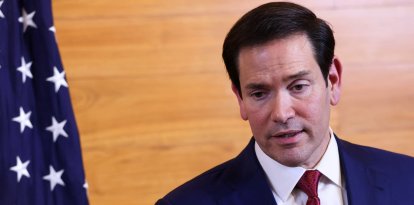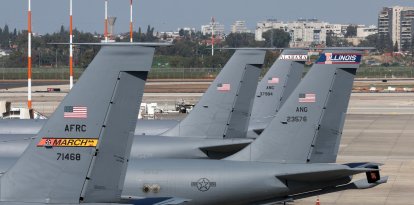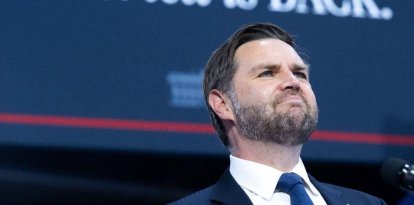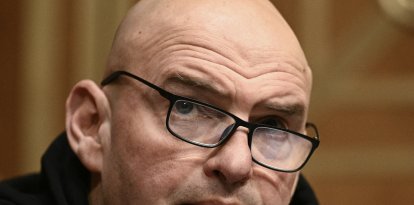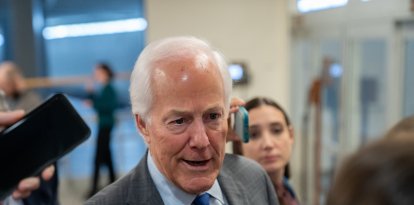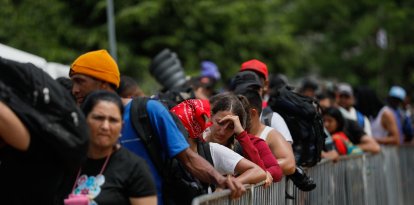Trump and Starmer summit meeting at the White House with Ukraine a priority
The president praised the economic relationship with the UK, promising to analyze whether to exclude it from the reciprocal tariffs he imposed on other nations. The big sticking point of the meeting: the terms of a possible peace deal between Kyiv and Moscow.
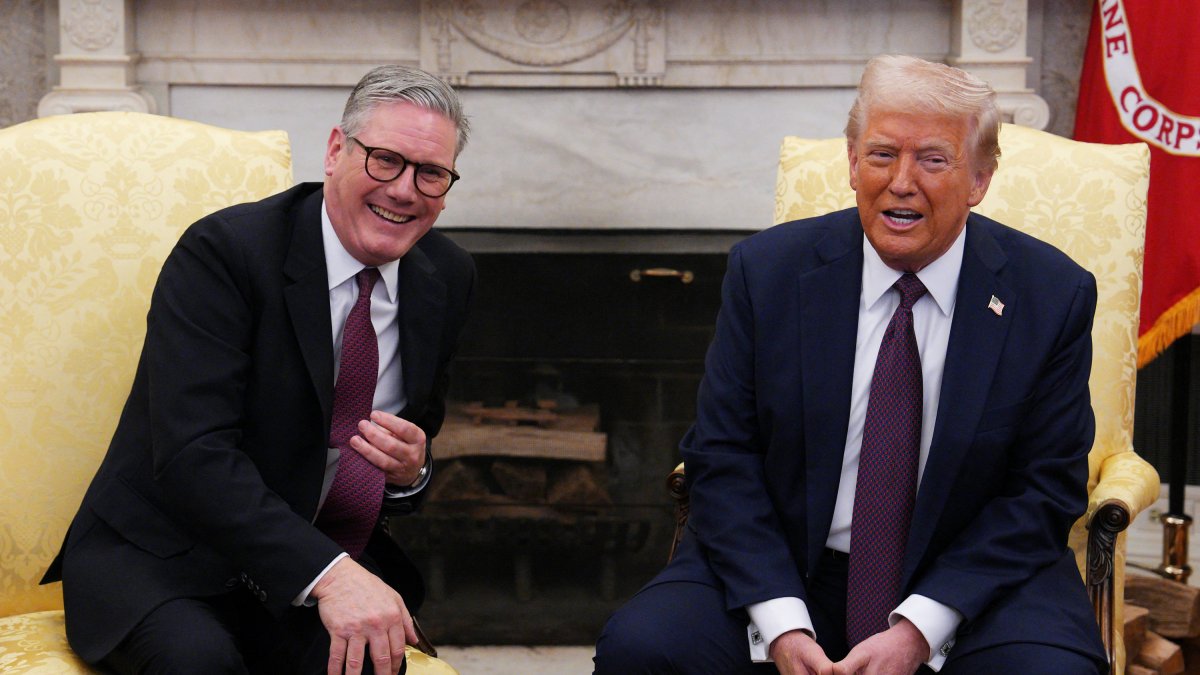
Donald Trump with Keir Starmer in the Oval Room.
In Washington, but with an eye on Ukraine, Donald Trump hosted British Prime Minister Keir Starmer at the White House on Thursday. With an agenda brimming, from possible reciprocal tariffs to disputed ownership of the Chagos Islands, one topic stole the spotlight: peace talks in Europe.
In their first joint public appearance, before locking up for in-depth talks, Trump laid the groundwork for his stance: on a possible Ukrainian entry into the North Atlantic Treaty Organization(NATO) he said, flatly, "its not going to happen." "That's what started this whole thing," he continued, retorting an argument used by Russia to defend the invasion - according to that one, the Ukrainian request to join the alliance had put Russian security at risk, forcing it to move ahead of NATO. Then he relativized it, saying that it was one of many reasons for the war.
On the possible return of territory to Kyiv, he promised that they would try to recover as much as possible. But that, after years of war, they had to be realistic. Hours earlier the Kremlin had reiterated that any conquered territory was off the table.
As a spur to negotiations, Starmer again publicly applauded Trump's efforts to end the conflict: "The deal, if we get it, is going to be hugely important. I don’t think it would’ve happened if the space hadn’t been created for it by yourself."
Security guarantees or cessation of hostilities?
One of the main issues in contention before the meeting was security assurances. While Trump had shown to prioritize the scope of a ceasefire, Starmer heads a group of European leaders who wish to establish safeguards against the resumption of confrontations, such as the presence of foreign forces on Ukrainian soil. Zelensky subscribes to the latter.
Already face to face, Trump insisted to Labor that the first thing is to agree on a cease to aggressions. Then will come, he said, the dialogue on the presence of foreign boots in Ukraine.
He also tried to postulate the economic agreement he is negotiating with Kyiv as a sort of guarantee: the presence of US interests, and even their workers, would deter Vladimir Putin. "I don't think we're even gonna be necessary," he said, alluding to American troops.
A minerals, peace and security agreement
The dialogue with Starmer at the White House preludes the arrival of Volodymyr Zelensky on Friday. The presidents will shake hands and, if on schedule, will sign an agreement for joint mineral exploitation in Ukraine. In Trump's eyes, the pact is as good as closed: "We're going to be signing the deal together," he told Starmer.
Although Trump acknowledged that his relationship with Zelensky had soured in recent weeks, he tried to tone it down: "Did I say that? I can't believe I said that," he responded when asked about his statements calling the Ukrainian president a "dictator." Trump indeed called the Ukrainian "dictator without elections."
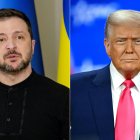
Politics
Revelan detalles del acuerdo de minerales que Trump y Zelensky firmarán el viernes
Leandro Fleischer
Defense spending
Days before the meeting, the prime minister had announced an increase in defense spending in line with Trump's demands. London committed to increase the military budget from 2.3% to 2.5% of gross domestic product (GDP) by 2027.
An administration official acknowledged to British media outlet The Telegraph that the president was "very pleased" with the decision, but noted that he would continue to insist that NATO allies increase their defense investment to 5% of GDP.
Since his first term, Trump has insisted that Europe invest more in its own defense.
Tariffs on the UK?
Tariffs or no tariffs, that is the question. Asked whether he was weighing imposing them on the United Kingdom, Trump replied that the two countries had a great relationship, and had very different words for his neighbors in the European Union.
The bloc, he claimed, imposes tariffs on American products through levies such as value-added tax. He also said he did not like the way they treated US companies, or their products.
When reporters pressed him about the UK, he replied, "We're going to have to take a look." Starmer took the opportunity to praise the economic link, asserting that it was "fair balanced" and that the US enjoyed a "surplus."
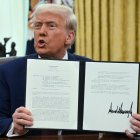
Politics
Trump announces another 10% increase in tariffs on China for participating in the production of fentanyl
Virginia Martínez
The Tate brothers... who?
The leaders' first conversation with the press coincided with the flight of influencer Andrew Tate and his brother, Tristan Tate, to Florida. Both were in Romania, where they faced charges of rape and human trafficking.
Reports in the press claimed that Washington, on Trump's direct order, had pressured Bucharest to lift travel restrictions on the Tates. This Thursday, the president denied those reports.
"I know nothing about that," he said about the flight to the United States.
Trump promises to travel to the United Kingdom
Starmer insisted, after saying it was a "historic" letter, that he wanted a response. "It will be our honour," Trump replied and promised to go in the "near future."













